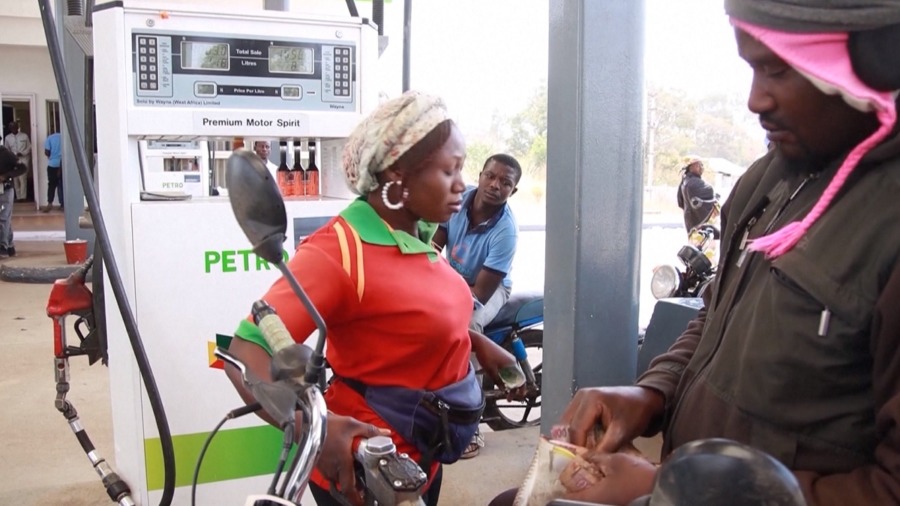In a move that shook Nigeria’s economic landscape, the newly inaugurated president introduced a set of sweeping reforms almost three months ago. The focal point of these changes was the bold decision to eliminate long-standing government fuel subsidies – a move that accounted for a significant quarter of Nigeria’s budget. This measure had artificially maintained low fuel prices for years, aiming to provide relief to citizens. However, the aftermath has proven to be a challenging terrain for Nigerians, as they grapple with a surge in both food and transport prices.
One citizen, Agnes Gamde, a retired government worker, stands in a bustling market, grappling with the harsh implications of the economic shift. As she navigates the stalls, her budget constraints loom large, making the simple act of buying food an arduous task. She explains, “We are just reducing the rate of eating in the house. Now we eat once a day, not three times.” Agnes’s sentiment resonates with countless others who have had to drastically alter their consumption patterns due to financial constraints.
The aftershocks of the reform have reverberated through various sectors, culminating in staggering inflation rates. Data reveals that inflation surged by a whopping 24.08 percent in July. The simultaneous surge in food and fuel prices can be directly attributed to the government’s decision to reduce subsidies, a move aimed at bolstering the economy. Unfortunately, this maneuver has inadvertently exacerbated the plight of Nigerians. In a nation where an alarming 70 percent of the population lives in poverty and an estimated four million citizens grapple with hunger, this strategy appears to have misfired.
To address the dire situation, the government has been compelled to implement subsidies for food, amounting to a substantial $235 million US dollars. However, experts in the field of economics suggest that alternative avenues could have been pursued to tackle the issue more effectively. They propose investing in critical infrastructure as a means to alleviate the challenges faced by the populace. One economic analyst, Samson Okafor, argues, “Instead of giving us these things, put up the refineries, it will help us a lot, because the effect of all we are suffering today is as a result of inability to put good roads, refineries functioning…these are the palliatives we expect.”
In response to mounting concerns, President Bola Tinubu has expressed the government’s commitment to resolving the food crisis. He places the responsibility on state governors to ensure transparency in fund management. Additionally, the administration vows to channel resources into Nigeria’s oil industry, aiming to uplift this crucial sector. The rehabilitation of the Port Harcourt Refinery, one of three oil refineries in the country, is already in progress. The president’s assurance that petroleum refinement will resume by December is expected to reduce transportation costs, subsequently mitigating the soaring expense of food.
While these reforms were intended to invigorate the economy, the immediate consequences have been steep price hikes in both food and transportation. For citizens like Agnes Gamde, navigating this new reality has meant making difficult choices on daily sustenance. The government’s subsequent distribution of food subsidies, while a necessary response, highlights the complexity of the issue. Moving forward, a balanced approach that integrates transparent fund management, investment in essential infrastructure, and strategic focus on the oil sector appears to be the path towards restoring stability and fostering sustainable economic growth.









